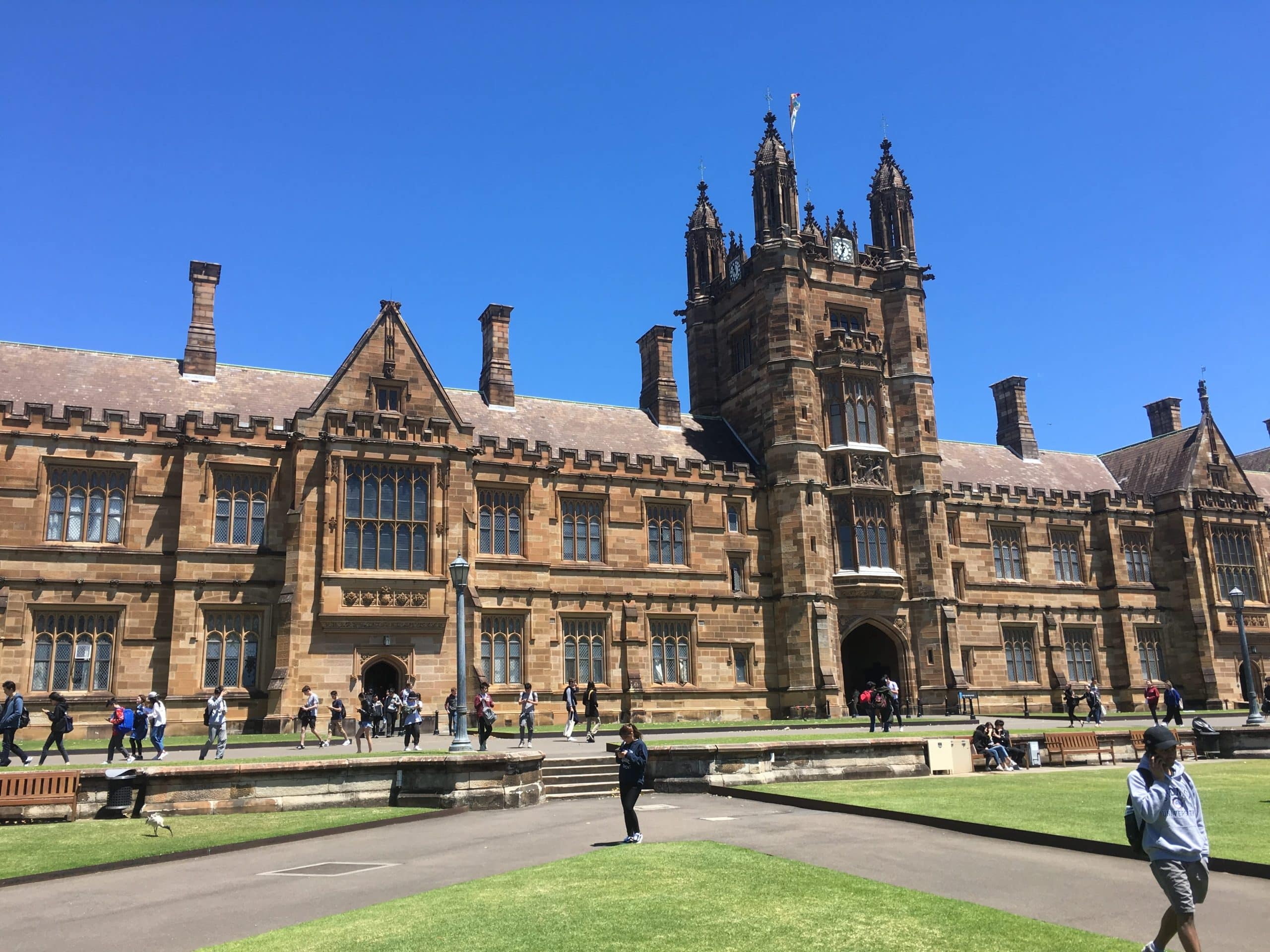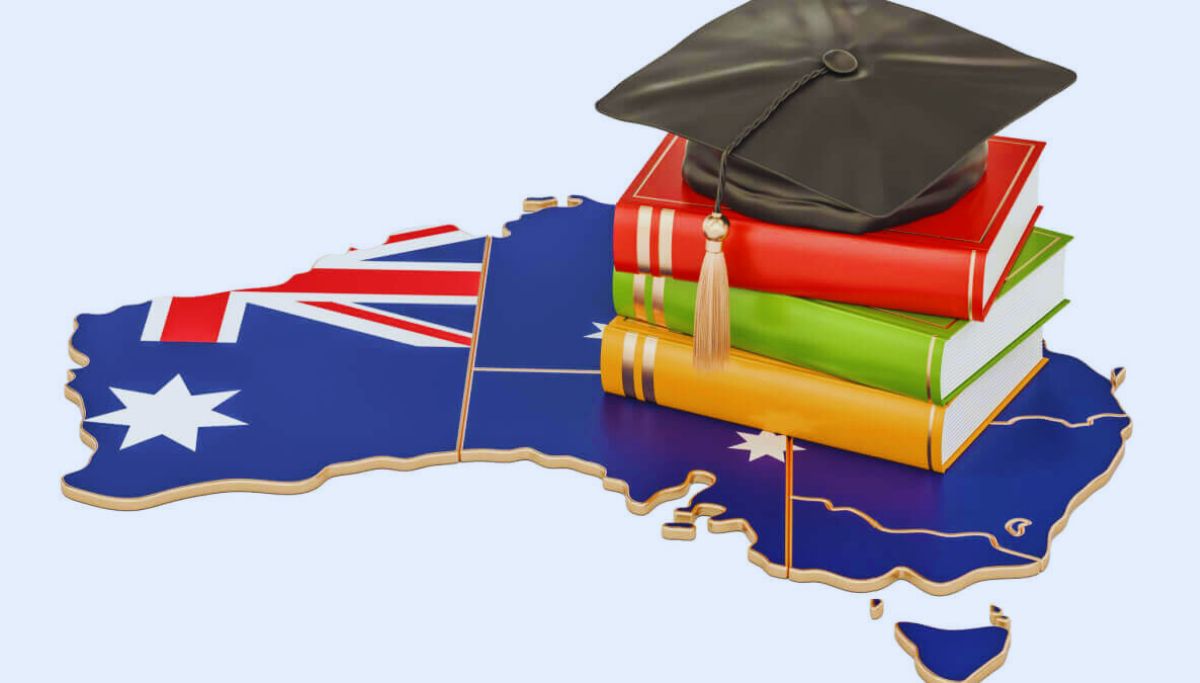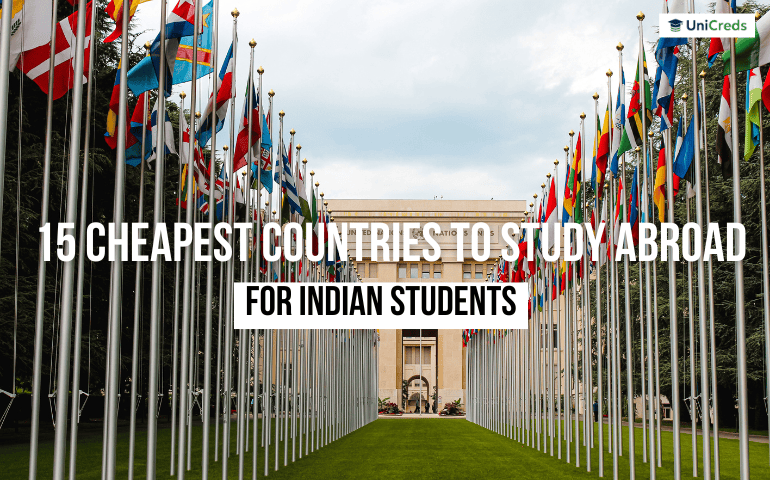Table of Contents
Studying in Australia offers a world-class education, but it’s essential to understand the associated costs. Tuition fees vary significantly depending on the level of study and the chosen institution, with undergraduate programs typically ranging from AUD 20,000 to AUD 45,000 per year.
At the same time, postgraduate degrees can cost between AUD 22,000 and AUD 50,000 annually. Beyond tuition, students must account for living expenses, which average around AUD 21,041 annually. Factors like course type, lifestyle, and location influence overall costs.
This blog provides a detailed breakdown of these expenses, including education, transportation, food, and more, to help you prepare for your academic journey.
Cost To Study In Australia In Top Universities
Wondering how much does university cost in Australia? Your expense on tuition depends a lot on the type of qualification and the university you are admitted to. For example, medical degrees cost substantially more than degrees in other fields of education. We can consider that the average tuition fees at one of Australia’s higher education Universities range between AUD 20,000 and AUD 50,000 a year.
Most commonly, courses in fields like humanities, arts, and education are comparatively cheaper, while subjects such as medicine and engineering are likely to be more costly.
If you wish to pursue a postgraduate degree, the tuition fee is typically higher, and the costs may vary depending on the programme. If you’re trying to bring down your educational expenses, it is best to apply for various available scholarships.
| University | Top Courses | Average Fees (Annual in AUD) |
| Australian National University (ANU) | Bachelor of Philosophy (Hons) Science; Master of Applied Data Analytics; Master of Museum and Heritage Studies; Master of Engineering in Electrical Engineering | $46,000-48,000 |
| The University of Melbourne | Bachelor of Agriculture, Master of Architectural Engineering, Master of Business Analytics | $45,000-47,000 |
| The University of Sydney | MBA; Master of Engineering (Software Engineering); Bachelor of Science (Health); Bachelor of Economics | $50,000-54,000 |
| The University of New South Wales (UNSW) | Master of Mining Engineering; Bachelor of Science (Advanced Mathematics); Bachelor of Engineering (Hons) (Mechanical); Bachelor of Engineering (Mechanical & Manufacturing) | $7,000-11,000 |
| The University of Queensland | Master of Tourism, Hotel & Event Management; Bachelor of Health, Sport & Physical Education | $2,900-3,500/credit |
| Monash University | Bachelor of Architectural Design; Master of Information Technology; Master of Data Science; Master of Advanced Nursing | $37,000-45,000 |
| The University of Western Australia (UWA) | Master of Professional Engineering; Master of Biological Science & Master of Biotechnology; Bachelor of Marine Sciences | $9,000-44,300 |
| The University of Adelaide | Master of Engineering (Mining); Master of Petroleum Engineering; Bachelor of Oral Health; Bachelor of Nursing | $45,000-48,000 |
| University of Technology Sydney | Bachelor of Business; Bachelor of Economics; Bachelor of Accounting; Master of Artificial Intelligence; Master of Physiotherapy | $1,256 per credit |
Annual Tuition Fees In Australia For International Students
The cost of studying in Australia varies based on the educational institution, location, and level of study.
Below is an overview of the average annual fees in the country.
| Level of Study | Average Annual Cost of Studying |
| Undergraduate bachelor’s degree | AUD 20,000 – AUD 45,000 |
| Postgraduate master’s degree | AUD 22,000 – AUD 50,000 |
| Doctoral Degree | AUD 20,000 0 AUD 42,000 |
Cost Of Living In Australia
The cost of living in Australia varies widely depending on the city or region you choose, as well as your lifestyle preferences. Major cities like Sydney and Melbourne tend to be more expensive compared to smaller cities or regional areas. Key living expenses include accommodation, food, transportation, utilities, and entertainment.
| Particulars | Cost (Monthly) |
| Off-Campus Accommodation | AU$ 800 |
| On-Campus Accommodation | AU$ 1,754 |
| Transportation | AU$ 150 |
| Food Cost | AU$ 780 |
| Utility Cost | AU$ 205 |
| Entertainment | AU$ 80 |
| Groceries | AU$ 68 |
| Clothes | AU$ 153 |
How To Fund Your Studies In Australia?

Funding your studies in Australia can seem daunting, but several options exist to make your dream a reality. abroad education loan are a popular choice, providing financial support to cover tuition fees, living expenses, and other costs.
Additionally, Australia offers a wide range of scholarships for international students, awarded based on academic merit, leadership potential, or specific fields of study. Many universities and government programmes provide partial or full scholarships to ease the financial burden.
With the right planning and research, you can explore these opportunities to secure the funding you need for your educational journey in Australia.
Education Loans In Australia For International Students
Education loans in India are a popular way to finance studies in Australia, covering tuition fees, living expenses, and other costs. Many banks and financial institutions provide loans with competitive interest rates and flexible repayment options.
Students typically need to provide proof of admission, a co-signer, and collateral (for higher loan amounts). These loans often include a moratorium period, allowing students to focus on their studies before repayment begins.
| Lender Name | Loan Upper Limit | Education Loan Interest Rates For Abroad Studies | Moratorium Period | Loan Tenure |
| UBI Education Loan | Up to INR 1.5 Cr | 9.85% – 10.5% | Course duration + 1 year | 10-15 years |
| Axis Bank Education Loan | Up to INR 2.5 Cr | 9.9%-12.5% | Course Duration + 1 year | 10-15 years |
| ICICI Bank Education Loan | Up to INR 1.5 Cr | 9.85% – 12% | Course duration + 1 year | 10-15 years |
| IDFC Education Loan | Up to INR 1.5 Cr | 9.5% – 12.75% | Course duration + 1 year | 10-15 years |
| Bank of Baroda Education Loan | Up to INR 1.5 Cr. | 9.7%-10.2% | Course duration + 1 year | 10-15 years |
| Credila | Up to INR 1.5 Cr | 9.75% – 12.5% | Course duration + 1 year | Up to 15 years |
| Avanse Education Loan | Up To INR 1.5 Cr | 10.50%-13% | Course duration + 1 year | Up to 15 years |
| Auxilo Education Loan | INR 25 Lakhs – INR 85 Lakhs | 11%-13.5% | Course duration + 1 year | Up to 15 years |
Scholarships To Fund Your Cost Of Studying In Australia
Here are some prominent scholarships available for international students planning to study in Australia:
1. Australian Government Research and Training Program (AGRTP):
Funded by the Australian Government, this scholarship supports both domestic and international students pursuing a Research Doctorate or Research Master’s degree. It covers tuition fees, and health insurance, and provides a stipend of approximately AUD 34,000 annually.
2. Australia Awards Scholarship:
This prestigious scholarship, offered by the Department of Foreign Affairs and Trade (DFAT), targets students from developing regions. It covers full tuition, living expenses, airfare, and health insurance for students pursuing undergraduate or postgraduate degrees at participating Australian institutions.
3. Destination Australia Scholarship:
This program encourages students to study in regional Australia to foster regional educational development. It offers AUD 15,000 annually and is renewable for up to four years, based on the duration of the program and continued eligibility.
4. John Allwright Fellowship (JAF):
This fellowship is designed for agricultural researchers from partner countries working on Australian Centre for International Agricultural Research (ACIAR) projects. It provides opportunities for postgraduate studies (PhD or Master’s) at Australian universities.
Tips To Create A Budget In Australia
Managing finances effectively is crucial when studying abroad. Here are some practical tips to help you create a budget while studying in Australia:
1. Calculate Your Total Income
- Identify all sources of income, including savings, part-time job earnings, scholarships, and education loans.
- Ensure you’re aware of any restrictions on part-time work hours for international students (usually 40 hours per fortnight during the semester).
2. Understand Your Expenses
- Fixed Costs: Tuition fees, rent, insurance, and transportation costs.
- Variable Costs: Groceries, utilities, study materials, and personal expenses.
- Account for occasional costs like flights home or leisure activities.
3. Track Your Spending
- Use budgeting apps or tools like Excel to monitor and categorize your daily expenses.
- Regularly review your spending habits to identify areas where you can cut costs.
4. Prioritise Essentials
- Focus on essential expenses like rent, food, and transportation before allocating money for leisure or non-essentials.
- Opt for shared accommodations or student housing to save on rent.
5. Take Advantage of Student Discounts
- Use student ID cards to access discounts on transportation, entertainment, and shopping.
- Explore budget-friendly options for groceries and dining out.
While the costs of tuition, living expenses, and other essentials can seem daunting, careful planning and financial management can make your academic journey both affordable and rewarding.
By understanding the various expenses, exploring funding options like scholarships and education loans, and budgeting wisely, you can ensure a smooth transition into student life in Australia.
FAQs
1. How much does it cost to study in Australia?
The cost varies depending on the institution, course, and location. Tuition fees typically range from AUD 30,000 to AUD 45,000 annually. Living expenses average around AUD 21,041 annually.
2. Are there scholarships available for international students in Australia?
Yes, many scholarships are available, such as the Australian Government Research and Training Program (AGRTP), Australia Awards Scholarships, and Destination Australia Scholarship, which can cover tuition fees, living expenses, and other costs.
3. Can I work part-time as an international student in Australia?
Yes, international students on a valid student visa can work up to 40 hours per fortnight during study periods and unlimited hours during semester breaks, helping cover living expenses.
4. What are the major living expenses for students in Australia?
Key living expenses include accommodation, groceries, transportation, and utilities and internet.
5. What is the cost of health insurance for international students in Australia?
Overseas Student Health Cover (OSHC) is mandatory for international students and costs approximately AUD 500 annually for singles, with higher rates for couples or families.










0 Comments